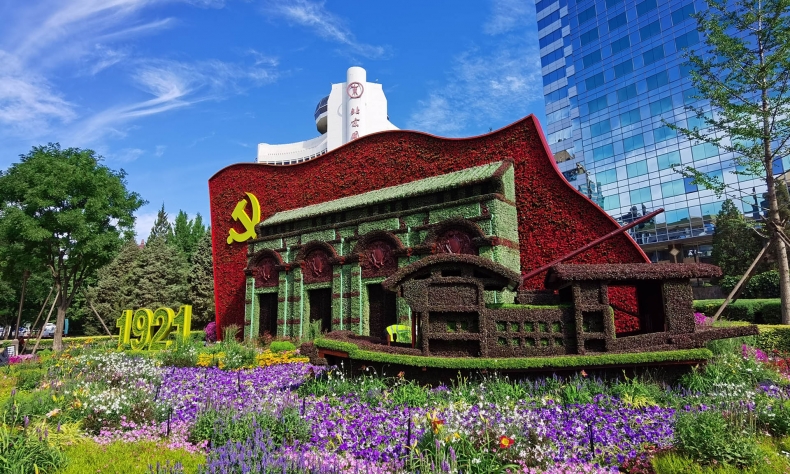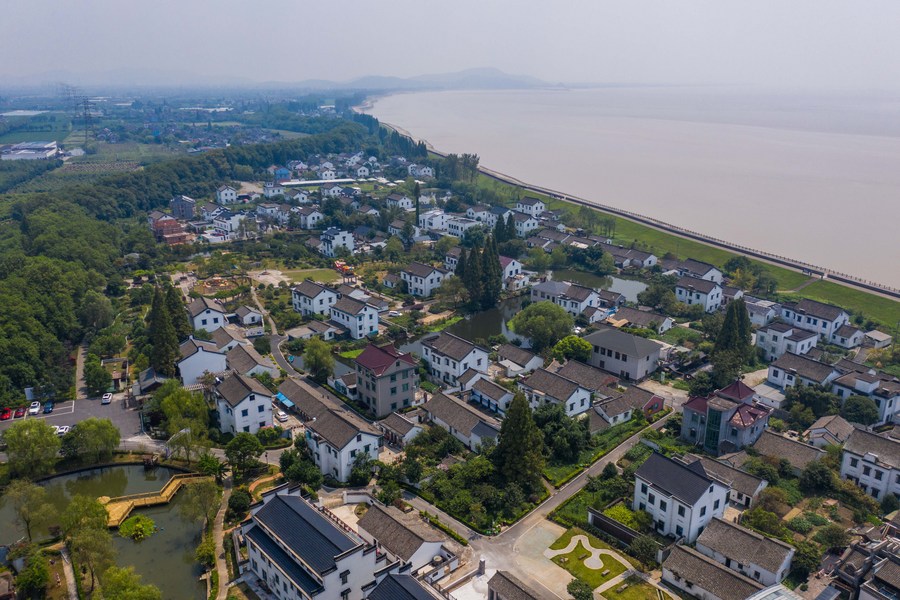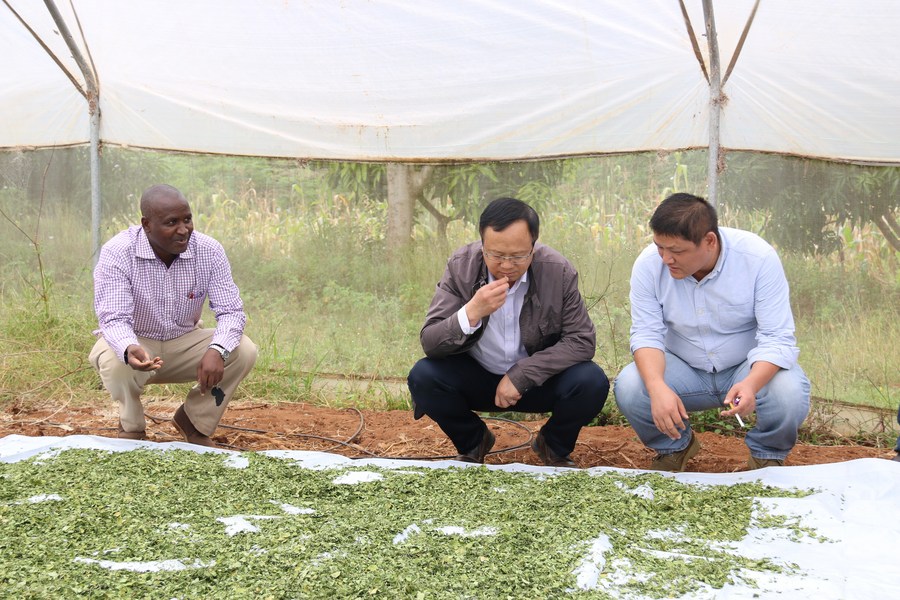The Party of the New Era

The economy, the ecology, and the country’s peaceful presence on the international scene are all issues China considers to be constitutive of its being a great responsible nation and a leading player in the protection and preservation of our planet.
The rejuvenation of the Communist Party of China (CPC) since celebrating its first centenary on July 1, 2021 gained further momentum from the sixth plenary session of the 19th CPC Central Committee. Convened in Beijing from 8 to 11 November, the event was eagerly anticipated not just by the Chinese people, but also by the chancelleries of nations worldwide. The centrality of the People’s Republic of China to the destiny of our planet is more strategic today than ever.
The Resolution on the Major Achievements and Historical Experience of the Party over the Past Century was adopted at the plenary session. It is only the third of its kind in the Party’s 100-year history: the first in 1945 before the victory in the War of Resistance against Japanese Aggression, and the second in 1981 with the advent of the reform and opening-up drive. The timing of the third resolution has its own historical significance. In 2021, the CPC celebrated its centenary, announced the completion of building a moderately prosperous society in all respects, known in China as the First Centenary Goal, and is leading the nation toward building a great modern socialist country, the Second Centenary Goal — by the mid-21st century.

The Party’s important theories reflect the evolution of the PRC’s ideological heritage. Mao Zedong Thought adapted the basic tenets of Marxism-Leninism to China’s specific realities and developed a theoretical synthesis of China’s unique experience, putting an end to China’s history as a semi-colonial, semi-feudal society. Deng Xiaoping Theory, focusing on the fundamental questions of what socialism is and how to build it and drawing lessons from the history of world, made it clear that China would follow its own path and build socialism with Chinese characteristics, which has guided China’s reform and opening-up. Xi Jinping Thought on Socialism with Chinese characteristics for a New Era has put forward a series of original new ideas, thoughts, and strategies on state and global governance revolving around the major questions of our times. Embodying the best of the Chinese culture and ethos in our times and representing a new breakthrough in adapting Marxism to the Chinese context, Xi Jinping Thought on Socialism with Chinese characteristics for a New Era is the Marxism of contemporary China and of the 21st century.
In the space of just 70 years, China eliminated the yoke that chained its peoples to slavish misery by virtue of speculative parasitic capitalism and foreign colonialism. The will of this great nation, as enshrined in its history, to regain its strategic place in global governance without any aspirations to hegemonism, can no longer be refuted.

By eliminating absolute poverty ten years ahead of the United Nations agenda, China both achieved and exceeded this vital goal in its long pursuit. Over the past 20 years, and especially in the most recent decade of the new millennium, China’s innovative expertise has created the chance for nations to participate in the visionary Belt and Road Initiative proposed by Chinese President Xi Jinping in 2013. Although initially treated with some reticence, this intelligent and original economic-techno-scientific project has been enthusiastically received by more and more countries in the global interconnected economy, and embraced by developing nations. Acknowledgment of its potentially common beneficence, moreover, has steadily dissipated earlier mistrust.
Having absorbed setbacks due to the sudden outbreak of the COVID-19 pandemic, China has sustained its relentless battle against the virus through stringent and uncompromising measures that have successfully contained the scourge. Over the past two years China has both limited its own human and economic losses and also contributed humanitarian aid to other affected countries by donating vaccines and medical equipment.
China made the commitment during the sixth plenum to continue its pursuit of progress and internal stability by strengthening its whole-process people’s democracy, improving social development, and guaranteeing military defense in order to safeguard national sovereignty, security and development interests. The “one country, two systems” policy was reaffirmed with regard to the special administrative regions of Hong Kong and Macao. China intends to pursue the approach of talks on both sides of the Taiwan Strait, and firmly opposes separatists’ activities and foreign interferences.
“Standing at a new historical starting point, we review the past and look to the future,” Xi said when he explained the Party leadership’s considerations on the theme of the plenum. The economy, the ecology, and the country’s peaceful presence on the international scene are all issues China considers to be constitutive of its being a great responsible nation and a leading player in the protection and preservation of our planet.
Adriano Madaro is an Italian writer, journalist, and a well-known expert on China. He has published more than 30 books on modern China.
 Facebook
Facebook
 Twitter
Twitter
 Linkedin
Linkedin
 Google +
Google +










